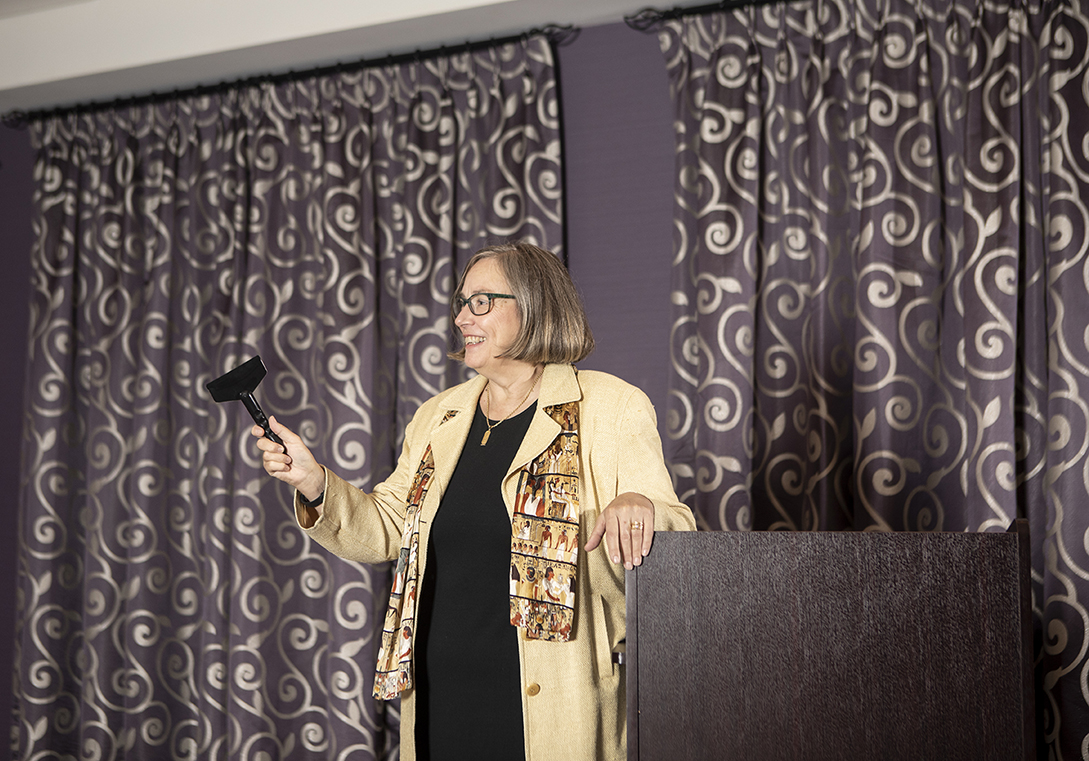AARP Hearing Center

When Joan Palmquist gives a presentation as part of AARP’s Fraud Watch Network, she always brings her $69 ice scraper.
She received the tool in the mail after ordering what was advertised on social media as a “lightweight, portable snowblower,” which she thought would be perfect for clearing her deck in the winter. But when a month passed and the snowblower hadn’t arrived, Palmquist, 66, unsuccessfully tried to contact the seller.
“I Googled the name of the company and ‘scam’ and up popped these stories that people paid $69 and all they got was an ice scraper,” she recalled.
Although her loss was relatively small, the retired marketing researcher said it shows that anyone can fall for a swindle. “I use it as an example of, if something seems too good to be true, it probably is.”
Palmquist, of Eden Prairie, is one of dozens of volunteers who give presentations across the state each year as part of the Fraud Watch Network.
Jay Haapala, community engagement director at AARP Minnesota, describes the network as a watchdog and a resource. “We work to stay informed on the latest scams,” he said. “Education is the best tool to help people prevent these crimes.”
‘Tis the season for fraud
Common cons involve online dating or phone calls from bogus Internal Revenue Service agents demanding payment.
Scammers also pretend to be from the Centers for Medicare and Medicaid Services, in order to sell fake insurance, or they phish for information that will help them steal identities, Haapala said.
Fraud spikes during the holidays. “There’s more online shopping,” he noted. “Packages are coming and going, and people have lots of charges on their cards, so the criminals’ activities may be noticed less.”
People also tend to feel charitable. “They get a solicitation for a donation but don’t take the time to verify if it is legitimate.”
An important practice in preventing fraud is to discuss your finances with people you trust. “Don’t be isolated,” Haapala advised. “Talk to family members about any big purchase plans.”
Other strategies include monitoring accounts and notifying financial institutions if you notice a discrepancy. Check your credit reports to ensure that no one is using your identity, and make payments only with trusted vendors.
“Criminals want to get paid with wires, prepaid gift cards and cash so they can remain anonymous and there’s no protection for their victims,” Haapala said.
It can help to learn from a pro, so AARP Minnesota is bringing Frank Abagnale, a former con man turned security expert, to give a talk, “Stealing Your Life,” at the Mayo Civic Center in Rochester.
It will take place Thursday, Nov. 7, from 6 to 8:30 p.m. Register at aarp.cvent.com/yourlife or call 877-926-8300.
Have you been scammed? Call the Fraud Watch Network helpline at 877-908-3360 or visit aarp.org/fraud.
To volunteer for the network, contact Meghan Redmond at mredmond@aarp.org or 651-726-5642. Sign up to receive alerts on the latest scams at aarp.org/fraudwatchnetwork.
To find a Fraud Watch event near you, go to aarp.org/mn or call 866-554-5381.
Mary Van Beusekom is a writer living in Excelsior.































































